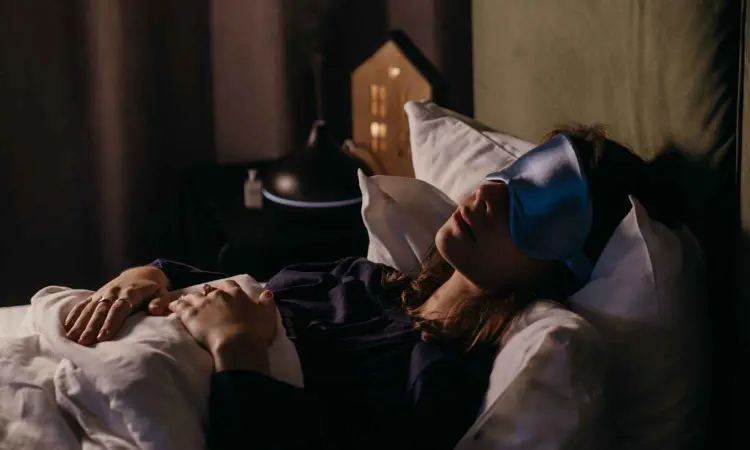- Home
- Medical news & Guidelines
- Anesthesiology
- Cardiology and CTVS
- Critical Care
- Dentistry
- Dermatology
- Diabetes and Endocrinology
- ENT
- Gastroenterology
- Medicine
- Nephrology
- Neurology
- Obstretics-Gynaecology
- Oncology
- Ophthalmology
- Orthopaedics
- Pediatrics-Neonatology
- Psychiatry
- Pulmonology
- Radiology
- Surgery
- Urology
- Laboratory Medicine
- Diet
- Nursing
- Paramedical
- Physiotherapy
- Health news
- Fact Check
- Bone Health Fact Check
- Brain Health Fact Check
- Cancer Related Fact Check
- Child Care Fact Check
- Dental and oral health fact check
- Diabetes and metabolic health fact check
- Diet and Nutrition Fact Check
- Eye and ENT Care Fact Check
- Fitness fact check
- Gut health fact check
- Heart health fact check
- Kidney health fact check
- Medical education fact check
- Men's health fact check
- Respiratory fact check
- Skin and hair care fact check
- Vaccine and Immunization fact check
- Women's health fact check
- AYUSH
- State News
- Andaman and Nicobar Islands
- Andhra Pradesh
- Arunachal Pradesh
- Assam
- Bihar
- Chandigarh
- Chattisgarh
- Dadra and Nagar Haveli
- Daman and Diu
- Delhi
- Goa
- Gujarat
- Haryana
- Himachal Pradesh
- Jammu & Kashmir
- Jharkhand
- Karnataka
- Kerala
- Ladakh
- Lakshadweep
- Madhya Pradesh
- Maharashtra
- Manipur
- Meghalaya
- Mizoram
- Nagaland
- Odisha
- Puducherry
- Punjab
- Rajasthan
- Sikkim
- Tamil Nadu
- Telangana
- Tripura
- Uttar Pradesh
- Uttrakhand
- West Bengal
- Medical Education
- Industry
Excessive daytime sleepiness associated with mortality in middle-aged women, claims research

A new study to be presented at the SLEEP 2025 annual meeting found that excessive daytime sleepiness is associated with higher odds of all-cause mortality in middle-aged women but not in younger or older women.
Results show that the adjusted odds of all-cause mortality were 16% higher in women between the ages of 50 and 65 years who had high scores on the Epworth Sleepiness Scale, compared with women who had normal levels of sleepiness. The results were adjusted for age, race, ethnicity, body mass index, and comorbidities. No significant associations were observed in younger women or older women.
“Identifying middle age as a critical period suggests clinicians should prioritize an Epworth Sleepiness Scale assessment and excessive daytime sleepiness management in women approaching their 50s and early 60s,” said lead author Arash Maghsoudi, who has a doctorate in biomedical engineering and is an instructor at the Baylor College of Medicine in Houston.
Sleepiness is a critical patient-reported outcome that is associated with increased risk for adverse health effects and diminished quality of life, according to an American Academy of Sleep Medicine position statement. Excessive sleepiness is defined as the inability to stay awake and alert during the major waking episodes of the day.
The study involved a retrospective analysis of the medical records of 40,250 female veterans from 1999 to 2022, focusing on individuals who had a sleep disorder or had received sleep-related care. The study sample had a mean age of 48 years. Clinical notes were analyzed to extract scores on the Epworth Sleepiness Scale, a validated natural language processing tool that assesses the likelihood of dozing off or falling asleep during routine daily activities.
According to Maghsoudi, it is noteworthy that there was no association between excessive daytime sleepiness and mortality in older women who tend to have more comorbidities.
“It implies hormonal, metabolic, or resilience factors that warrant mechanistic follow-up for women in middle age,” he said.
Reference:
Arash Maghsoudi, Kalli McWhinney, Mehrnaz Azarian, Amin Ramezani, Javad Razjouyan, Amir Sharafkhaneh, 0929 Excessive Daytime Sleepiness and All-Cause Mortality in Female Veterans: A Retrospective Cohort Analysis, Sleep, Volume 48, Issue Supplement_1, May 2025, Pages A403–A404, https://doi.org/10.1093/sleep/zsaf090.0929
Dr Kamal Kant Kohli-MBBS, DTCD- a chest specialist with more than 30 years of practice and a flair for writing clinical articles, Dr Kamal Kant Kohli joined Medical Dialogues as a Chief Editor of Medical News. Besides writing articles, as an editor, he proofreads and verifies all the medical content published on Medical Dialogues including those coming from journals, studies,medical conferences,guidelines etc. Email: drkohli@medicaldialogues.in. Contact no. 011-43720751


